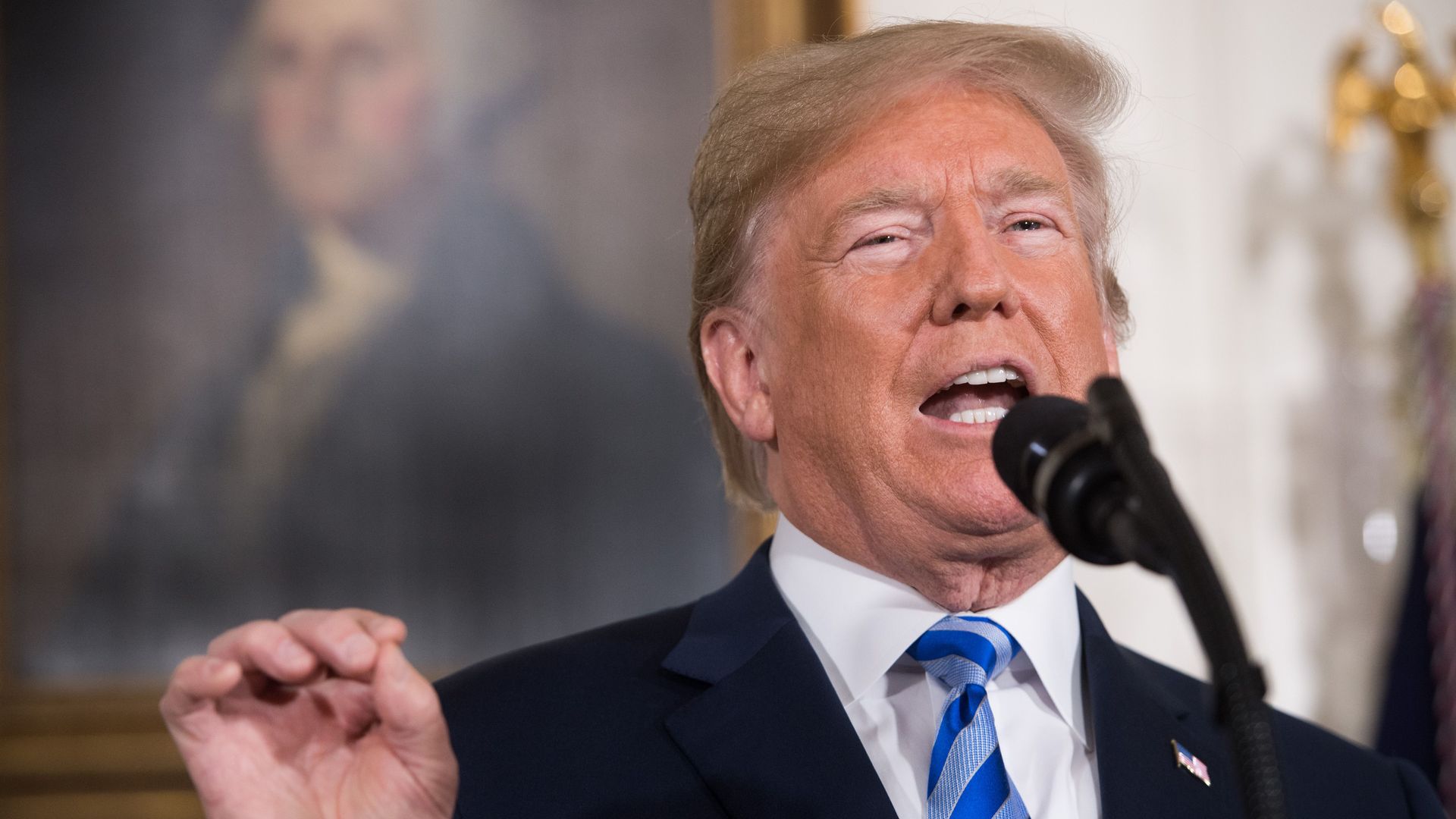Updated May 8, 2018 - World
Expert VoicesIran deal exit splinters alliances, jeopardizes security
Add Axios as your preferred source to
see more of our stories on Google.

President Trump announces the U.S.' withdrawal from the Iran nuclear deal in the Diplomatic Reception Room at the White House on May 8, 2018. Photo: Saul Loeb/AFP/Getty Images
